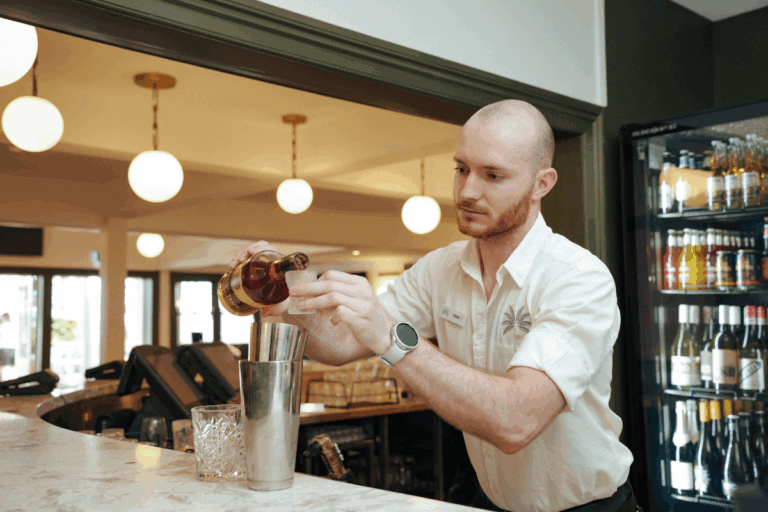
Grand View Hotel

3 minutes read
I recently had the joy of delivering disability awareness training to the Aruga team. Though it’s impossible to cover everything in just one session, we touched on the social model of disability, the concept of disability pride and basic language dos and don’ts.
While not perfect, the social model of disability states that a person is disabled when they encounter a barrier in society that does not exist for a non-disabled person. For example, if a business meeting is scheduled in a cafe with steps leading to the entrance, this is a barrier preventing me from taking part that does not affect my non-disabled colleagues. I am disabled by that barrier.
We have all been taught by society to believe disability is a problem with the person, either through injury, illness or disease. But this line of thinking comes from the medical model of disability – one we are trying to move away from.
At the Aruga training session, we also discussed how we can meet access requirements (also known as access needs). Access requirements are accommodations or supports that make an activity, space or communication process accessible to all parties.
In the PR world, there may be different access requirements to consider. If you have an interview subject who is non-speaking and uses a communication device, emailed interviews are most accessible. There may be a need for Auslan Interpreters. Media calls may need to be organised in venues without stairs or with adequate disabled parking and restrooms. The list goes on and on.
Truthfully, society has not been doing enough about access and communication and the media in particular has a very long way to go. It’s not impossible, though.
It starts with image or video descriptions with every social media post.
It continues with the evaluation of the language we use, which may inadvertently perpetuate negative stereotypes, accepting that disability is not a dirty word and euphemisms, such as ‘special needs’ and ‘different ability/diffability’, are inappropriate.
Crucially, it requires a reevaluation of the need to sensationalise disability for public consumption. ‘Inspiration porn’ is everywhere. The absolute least we can do is stop positioning disabled people as victims or objects of pity. We are neither.
As a disabled woman, I have plenty of experience with ableism, discrimination and inaccessibility. I have a career in the arts not because I ‘overcame disability’ – a harmful concept rooted in inspiration porn – but because I educated myself in disability identity, culture, politics and pride.
And you can, too. Disability awareness training is a start. It can be a vital tool so your team can begin to understand disability and unpack the assumptions that contribute to a less accessible world.
I’m glad to have worked with Aruga and look forward to seeing our media become more authentic, respectful and accessible as a result.
[Image description: a woman in her mid-20s with red hair and a black top smiles directly at the camera.]
Igniting that spark between audience and brand is what we do – creatively grounded PR that grabs attention like a box of glazed donuts. Our team of results-focused publicists has the strategic nous and a contact list to die for that will put you, your product or your business in front of the media.